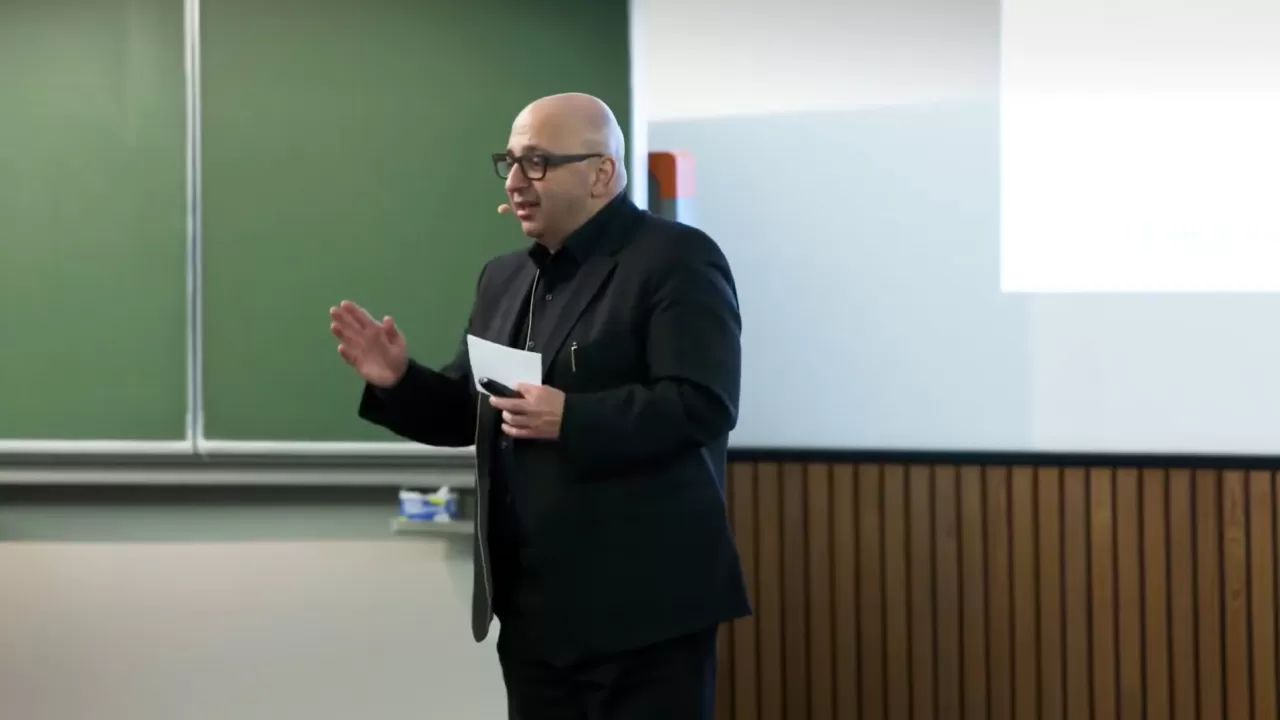#5 Armin Nassehi

Armin Nassehi, a professor of sociology in Munich and one of the field’s most distinguished voices, gave a lecture at Bielefeld University on December 19, 2022, on “Making Decisions under Uncertainty”. Bielefeld University stands in a distinct tradition: It was here that Niklas Luhmann, whose systems theory was to have a profound impact on Nassehi, taught from 1968 until his retirement in 1993. The question at the heart of Nassehi’s lecture – How do we make decisions? – could not be more timely in an era of global political turmoil and increasing symptoms of crisis. Can we save the world by making the right decisions? Are politicians able to pave the way for such decisions and build the majority support they need to get their decisions adopted?
According to Nassehi, decisions are a key element of our modern lifeworld. Everything must be decided, nothing must be left to seeming chance. This thinking maintains that decisions are per se a rationally grounded resource that we, by building adeptly on our knowledge and experience, can access to tackle almost any challenge facing us. Nassehi, however, shows that such assumptions are constructs masking an illusion. Ultimately, every decision faces the dilemma of having to to elevate a random fact or circumstance to the status of a rational principle. Making the right decision has nothing to do with selecting the best option from a set of available alternatives in order to create a piece of purely rational evidence. Rather, decisions are often built on constructions of reality that are based on hypotheses and data collected by the decision-makers themselves, or persuasions that nudge us towards certain interpretations of the world. Especially in the political domain, decisions are frequently orchestrated in order to create a specific impact or outcome. By implicitly shaping arguments around a specific set of alternative choices, politics itself limits the scope of what can be decided. The good reasons given to substantiate decisions often prove to be highly subjective positions and assumptions. It is because all decisions – and not just decisions made in times of crisis – are subject to uncertainty, except in settings where we can distinguish false and correct options in advance, that there is a need to set up such dramatic either-or situations.
Beyond sober definitions, Nassehi’s lecture offers up a volley of examples – drawn in particular from the COVID pandemic – that reveal how deeply our thinking is shaped by the narrative that imposes on us a constant need to make decisions, and how rarely we are able to question the ends it serves. Both intellectually stimulating and entertaining, Nassehi’s lecture is proof that sociology is not just about abstraction and conceptual clarity, but can also encompass urbane irony, relatable examples, and accessible theories.
Peter-André Alt
Date December 19, 2022
Length 72 mins
Title, series Making Decisions under Uncertainty, Bielefeld Lectures
Language German
Video Bielefeld University